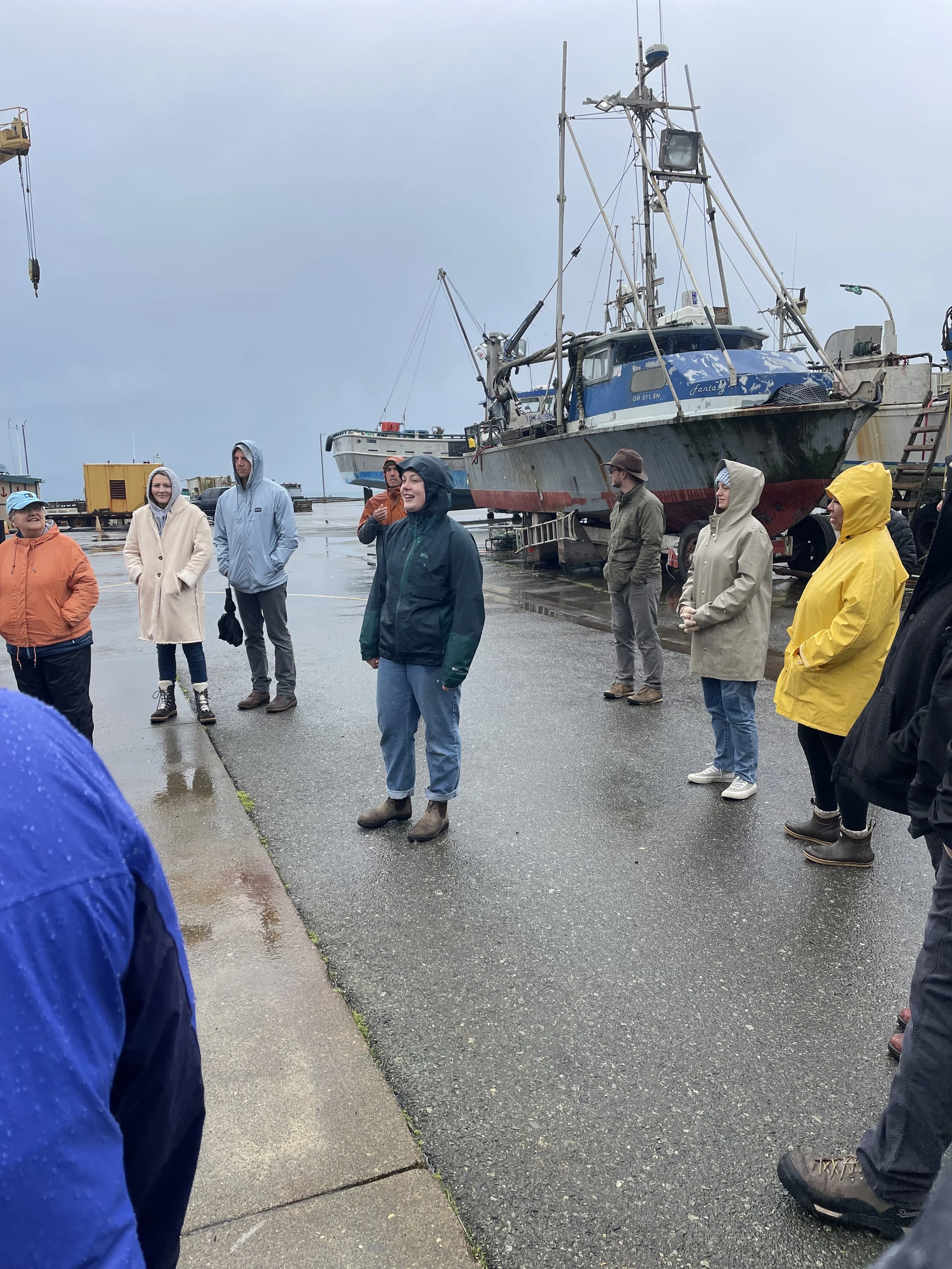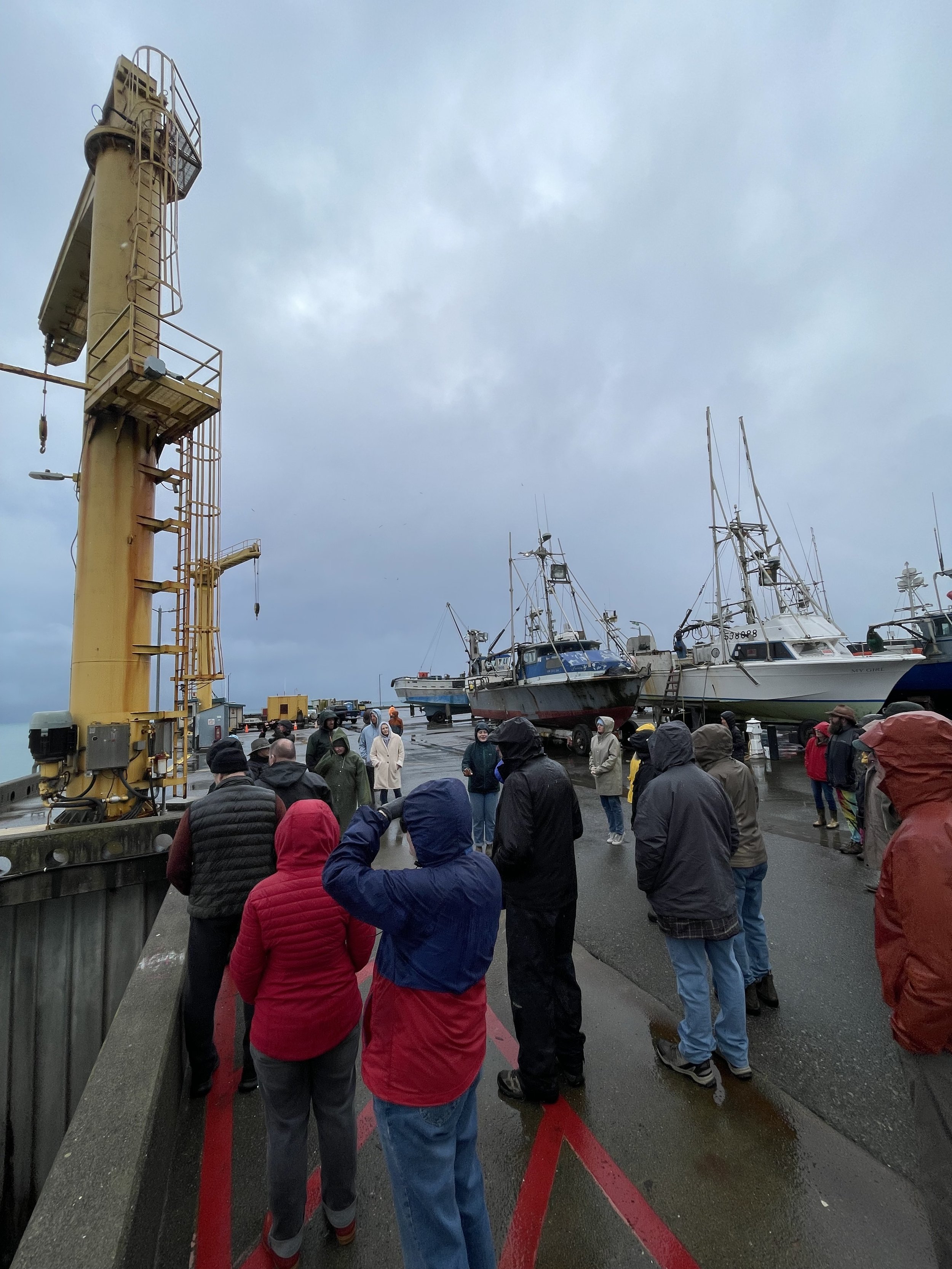RECAP: Fisheries and Aquaculture Tour
Sunday, March 2nd, 2025 — Port Orford & Bandon, OR
We were so impressed by the community support and engagement in Port Orford. It was especially evident on the final day of our Winter Waters events. Our Fisheries and Aquaculture Tour in Port Orford and Bandon was sold out and fully attended, despite the poor weather forecast. The day was filled with education, an amazing lunch, plenty of rain, and a group of strong, enthusiastic participants.
The day began at the Port of Port Orford, where we heard from Faith Townsend, the Port’s communications intern. She shared insights into the unique operations of this one-of-a-kind port. It is the only dolly dock on the West Coast, where boats are launched and stored using cranes and custom-made dollies. Faith also told us that it is one of only two dolly docks in the entire country!
We learned about regional fishing opportunities and, to our surprise, had the chance to speak with not one, but three local fishermen: Aaron McKenzie, Orion Ashdown, and Phillip Russum. Tom Calvanese, a Port Commissioner among many other roles, spoke about the ongoing research initiatives based at the Port, as well as the upcoming creation of a Port Orford Seafood Hub, which you can explore here. Despite the heavy rain, no one hesitated to stay at the port, asking questions of the generous fishermen until we had to literally pull them away to get to lunch on time.
Port Orford Sustainable Seafood was firing up the grill for the most decadent bowls of seafood, freshly landed by the fishermen we had just spoken with. Both black cod (sablefish) and rockfish were on the menu, with a surprise addition of dulse furikake fries and salmon arancini. It was an incredible abundance of delicious food coming out of their humble kitchen housed in the Port Orford Field Station.
We huddled upstairs at the Field Station, taking shelter from the rain, and heard from Kean of Port Orford Sustainable Seafood as he shared his mission of bringing local seafood to more plates. POSS offers a Community Supported Fishery program, allowing you to order local seafood delivered straight to your door, whether you are on the coast, in the valley, or even in Portland.
Next, the group drove up the coast to Bandon, Oregon, where we had the opportunity to visit the Port of Bandon. Unique and exciting operations are taking place at this port, led by Port Manager Jeff Griffen. Both dulse seaweed aquaculture and urchin ranching efforts are underway at the facility. Behind the Port Office, which also happens to be the old Coast Guard station, the Port of Bandon has developed land-based aquaculture tanks in collaboration with Oregon Seaweed.
Visitors had the opportunity to learn about dulse farming from Alanna, Winter Waters co-founder and sales manager at Oregon Seaweed. Attendees explored the differences between land-based and water-based seaweed aquaculture, why certain species thrive better in one system over the other, and what regulations currently prevent Oregon from laying kelp lines directly in the ocean. Pacific dulse is the only locally grown species at the moment, so if you have attended any Winter Waters events, you have likely tasted it. It felt fitting that on the final day of our series, participants came full circle by learning how this crop is grown.
We then moved to the recently developed urchin ranching tanks, where Tom Calvanese of the Oregon Kelp Alliance (ORKA) gave us a detailed overview. Discussions about current ecosystem imbalances led to the topic of why urchin ranching is necessary. We learned about the anatomy and physiology of sea urchins, and how their unchecked population has contributed to the decline of kelp forests. This is largely due to the loss of key predators such as sea otters and sunflower sea stars. Tom also explained why harvested urchins must be fed before they are ready for the culinary market, as they are not immediately usable after collection.
ORKA also has an exciting new project underway at the port: a bull kelp hatchery. The organization has received permits and grant funding to begin seeding bull kelp in specific areas around Port Orford. This effort, combined with urchin removal and the reintroduction of sunflower sea stars, aims to restore native kelp beds. Although we did not see any bull kelp growing yet—since it is currently in its microscopic life phase—we were able to view the facilities and hear from Carl Hendrickson about how the project is taking shape.
There was so much to discuss, teach, and learn from one another, and we could not be more thrilled with the turnout for this tour. All of the instructors are deeply passionate about their work, and it was encouraging to see so many people who are equally interested and invested in these efforts. We hope to offer more Fisheries and Aquaculture tours in the future, and we are already looking forward to bringing this experience back for our February series next year.


















A huge thank you to Discover Port Orford, Port Orford Main Street, and Travel Curry Coast for sponsoring Winter Waters on the South coast.









